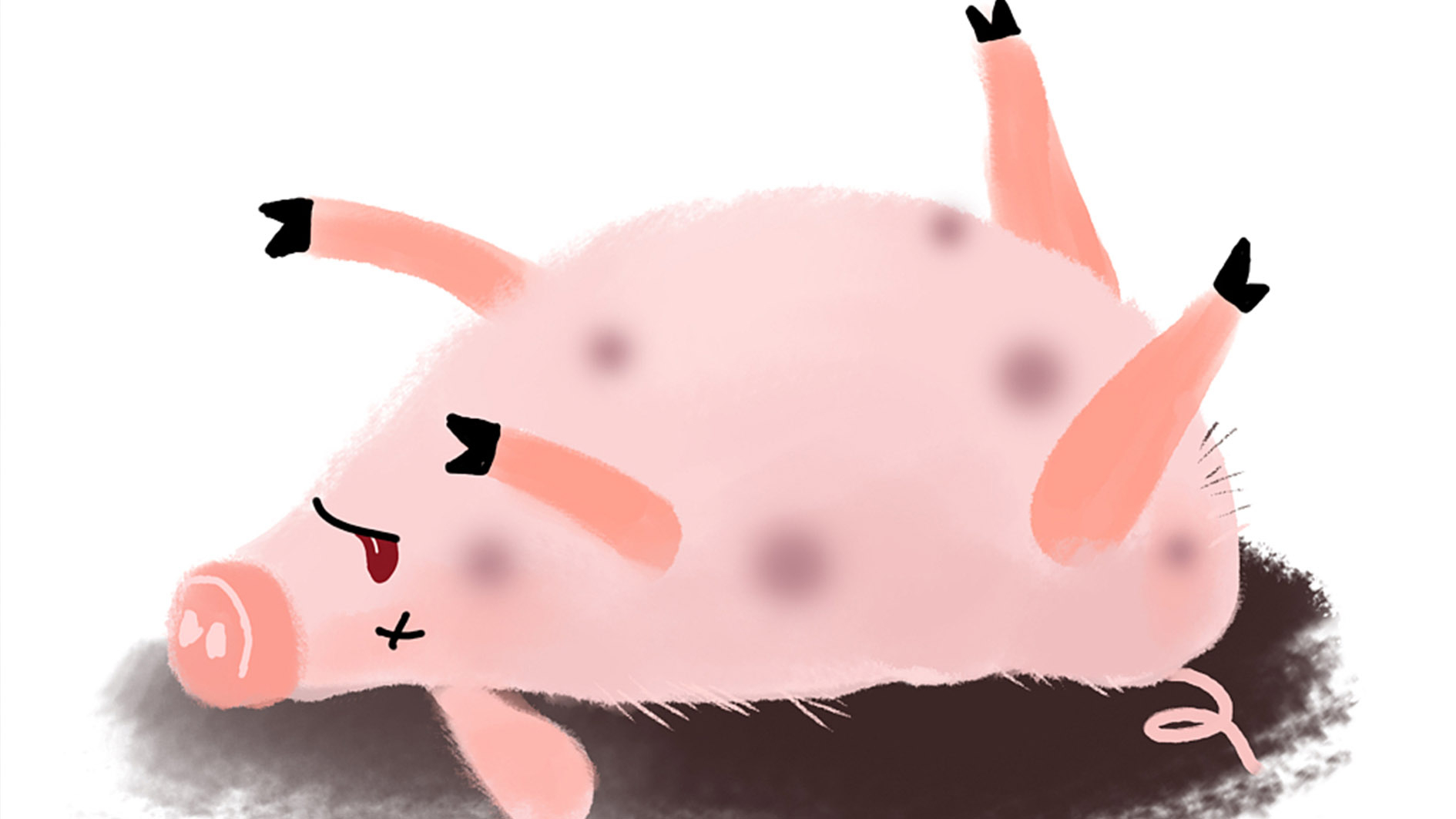

An African Swine Fever epidemic has been ravaging China's pig farming industry since last August. The disease is caused by African swine fever virus, or ASFV. The virus is none threatening to humans, but has a high mortality rate among domestic pigs. The epidemic has hit China's pig farms hard.
Since the report of the first outbreak in Northeastern's Liaoning Province last August, more than 1.16 million of pigs have been culled. Outbreaks have been reported in every provincial level administrative division in China except for Hong Kong and Macao. However, the epidemic appears to be under control. 44 outbreaks were reported as of July 3, compared to 99 cases last year. Quarantines in 25 provinces and autonomous regions have been lifted up to July.
"The spread of the virus has been slowing down this year. Normal production and transportation of pork are recovering," said Yu Kangzhen, vice minister of China's Agriculture and Rural Affairs.
China is the world's largest pork producer and consumer. The number of pigs on farms across the country has dropped drastically since the outbreak. According to the government's poll in 400 counties with a sizable pig farming sector in May, the number of pigs on farms has dropped 22.9 percent compared to the same period of last year. To supply the market, official said the option of imported pork is always on the table.
"We have been, and will be, importing pork from other countries, including the United States, if the market demands," said Yu.
China has recently enacted new measures to contain the epidemic. A government document says the local government must prevent unprocessed kitchen scraps from entering pig farms as feed. Many Chinese pig farmers traditionally collect kitchen scraps to use as feed for livestock. The document also says farmers will not be compensated for culled pigs if an outbreak is caused by feeding livestock with kitchen scraps. On site veterinarians will also be placed in every slaughterhouse, with the cost subsidized by local government.
Subsidies and technical assistance will also be offered to farmers to help to recover the country's pork production. "We will help farmers to build modernized and standardized pig farms," said Yang Zhenhai, director-general of the Department of Livestock. "This way we can build a sustainable and healthy pork sector."

Copyright © 2018 CGTN. Beijing ICP prepared NO.16065310-3
Copyright © 2018 CGTN. Beijing ICP prepared NO.16065310-3